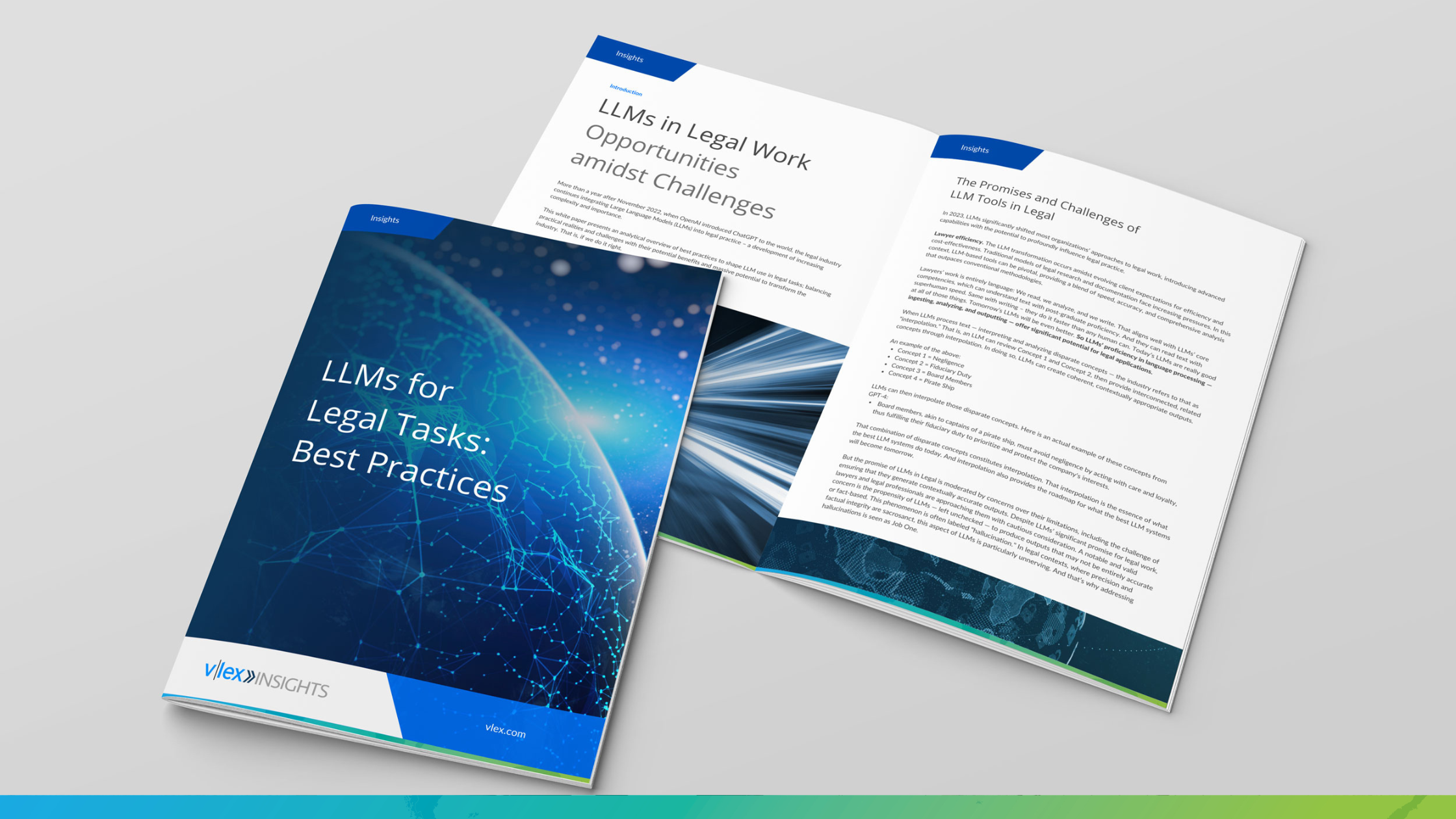Whitepaper: LLMs for Legal Tasks
8 February 2024
This paper presents an analytical overview of some best-practice strategies for using Large Language Models (LLMs) to perform legal tasks — reducing and resolving concerns such as inaccuracy and confabulations (“hallucinations”) — to realize LLMs’ potential to transform legal practice. In particular, the paper argues that systems must enable users to more easily "trust but verify" the LLMs’ outputs. That ease of use — through the User Interface (UI) and User Experience (UX) — should help ensure that human lawyers actually perform that necessary “trust but verify” step. The paper also explores the role that LLM-based legal tools can play in legal argumentation, jurisdiction comparison, and user-centric approaches to providing answers — outlining how integrating Generative AI into legal practice can redefine legal tasks by helping lawyers move beyond traditional tools.
About the author
Damien Riehl is a lawyer and technologist with experience in complex litigation, digital forensics, and software development. A coder since 1985 and for the web since 1995, Damien clerked for the chief judges of state and federal courts, practiced in complex litigation for over a decade, has led teams of cybersecurity and world-spanning digital forensics investigations, and has led teams in legal-software development. Co-Chair of the Minnesota Governor’s Council on Connected and Automated Vehicles, he has helped recommend changes to Minnesota statutes, rules, and policies — all related to connected and autonomous vehicles. Damien is Chair of the Minnesota State Bar Association's working group on AI and the Unauthorized Practice of Law (UPL). At SALI, the legal data standard he helps lead, Damien develops and has greatly expanded the taxonomy of over 14,000 legal tags that matter, helping the legal industry's development of Generative AI, analytics, and interoperability. At vLex Group — which includes Fastcase, NextChapter, and Docket Alarm — Damien helps lead the design, development, and expansion of various products, integrating AI-backed technologies (e.g., GPT) to improve legal workflows and to power legal data analytics.